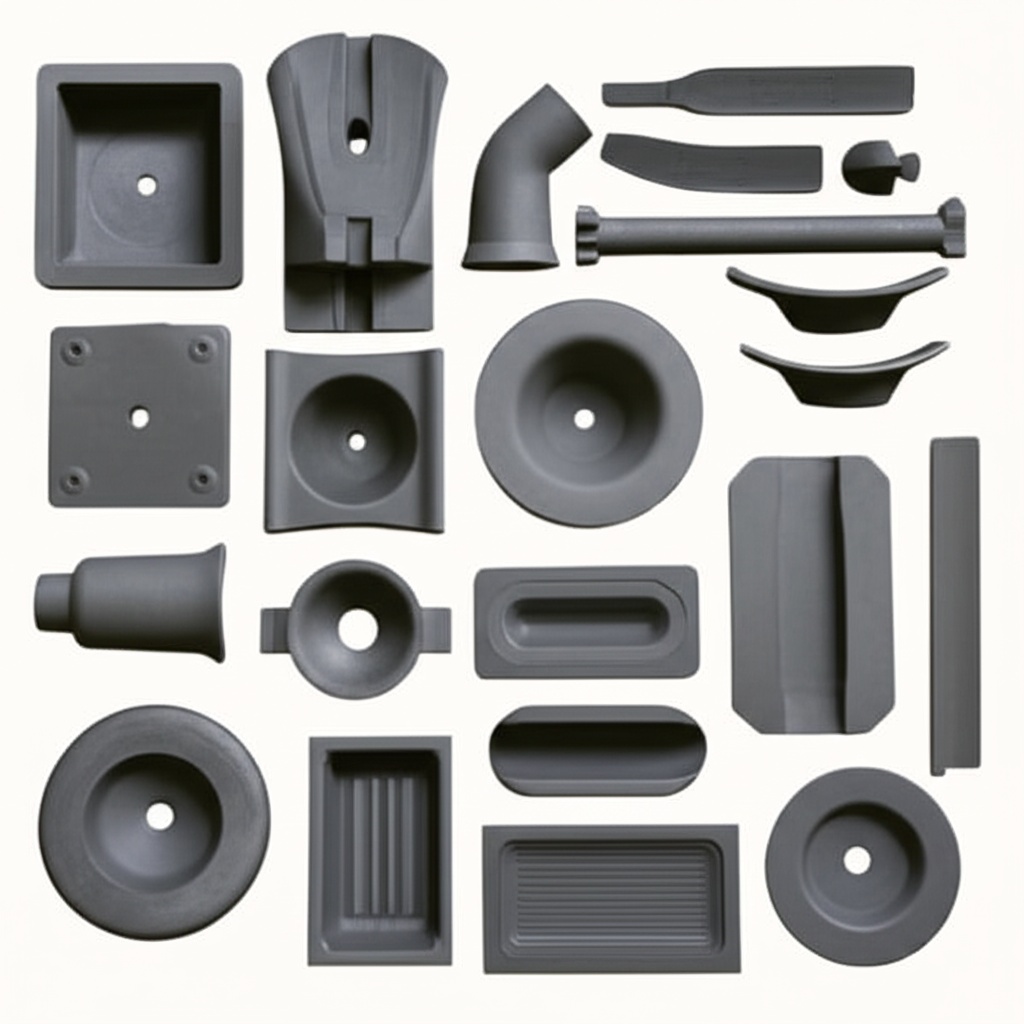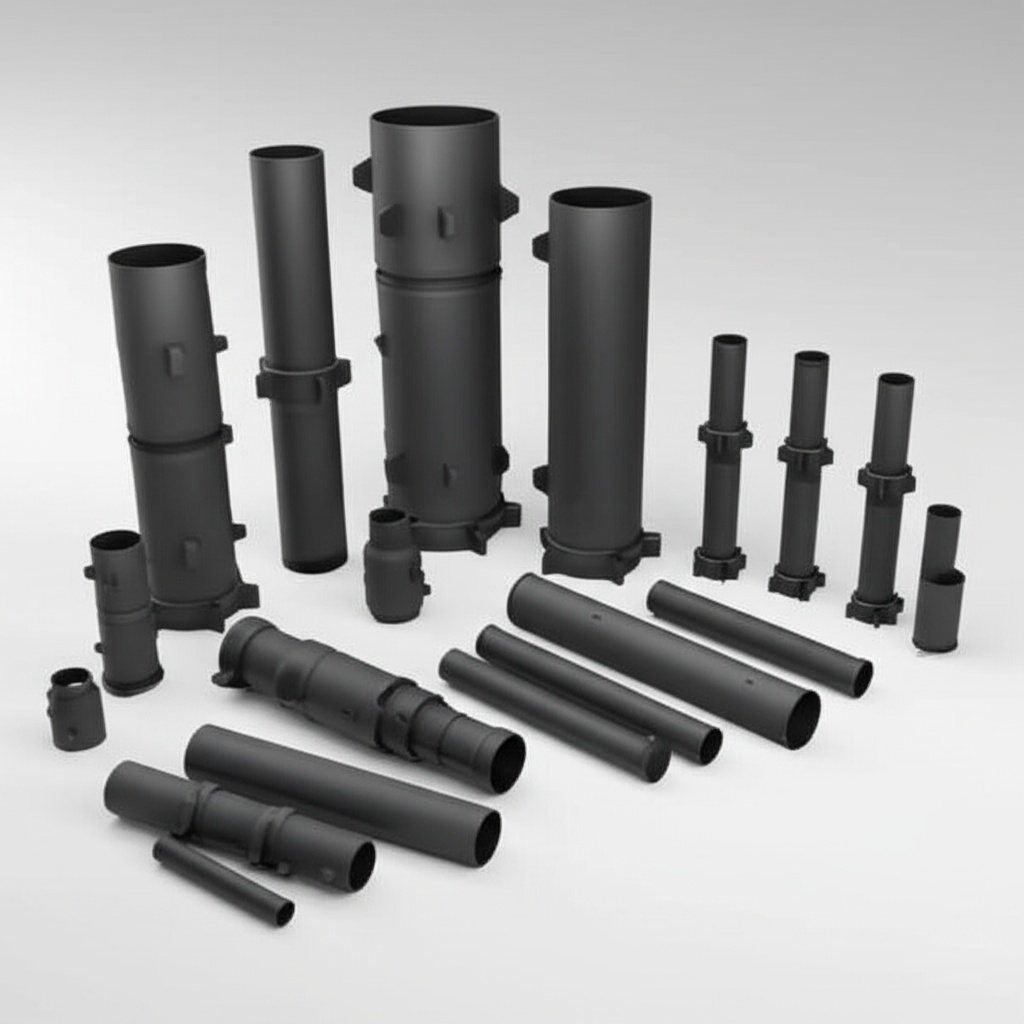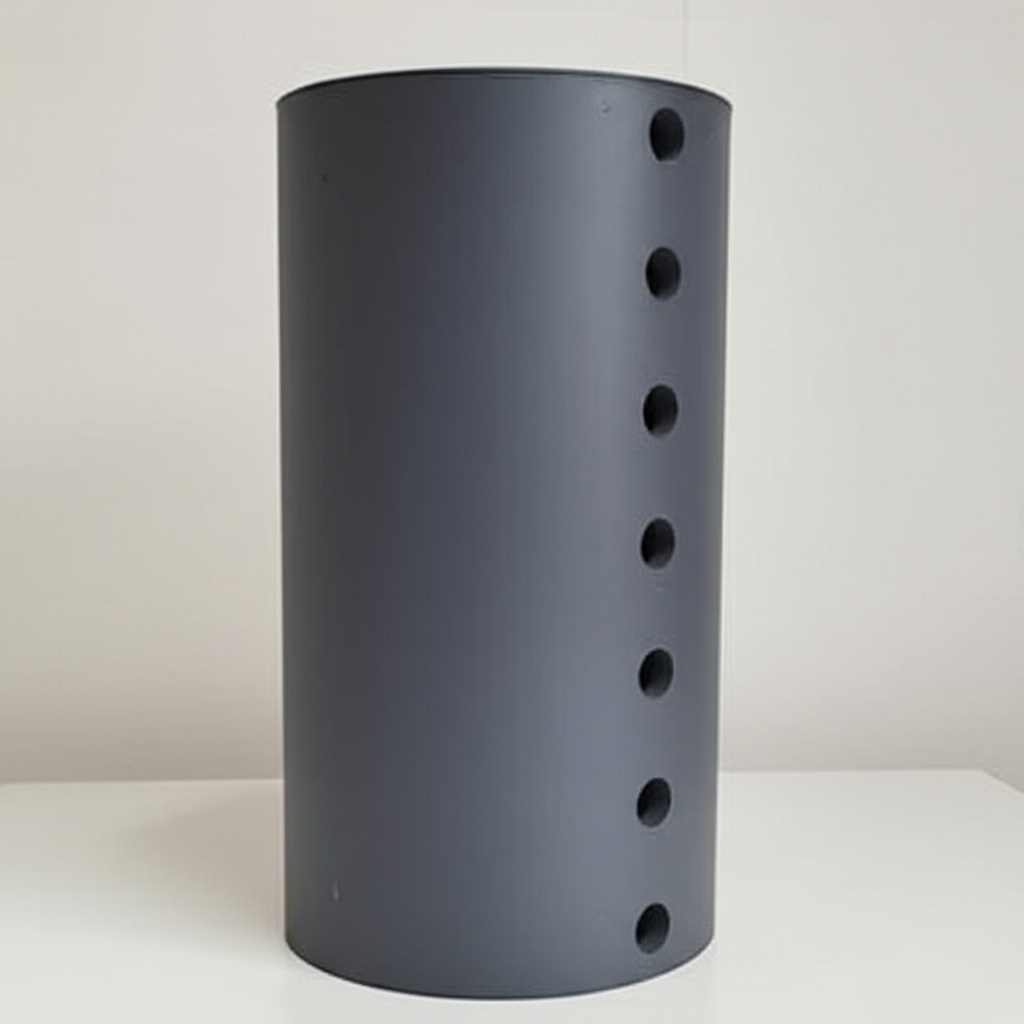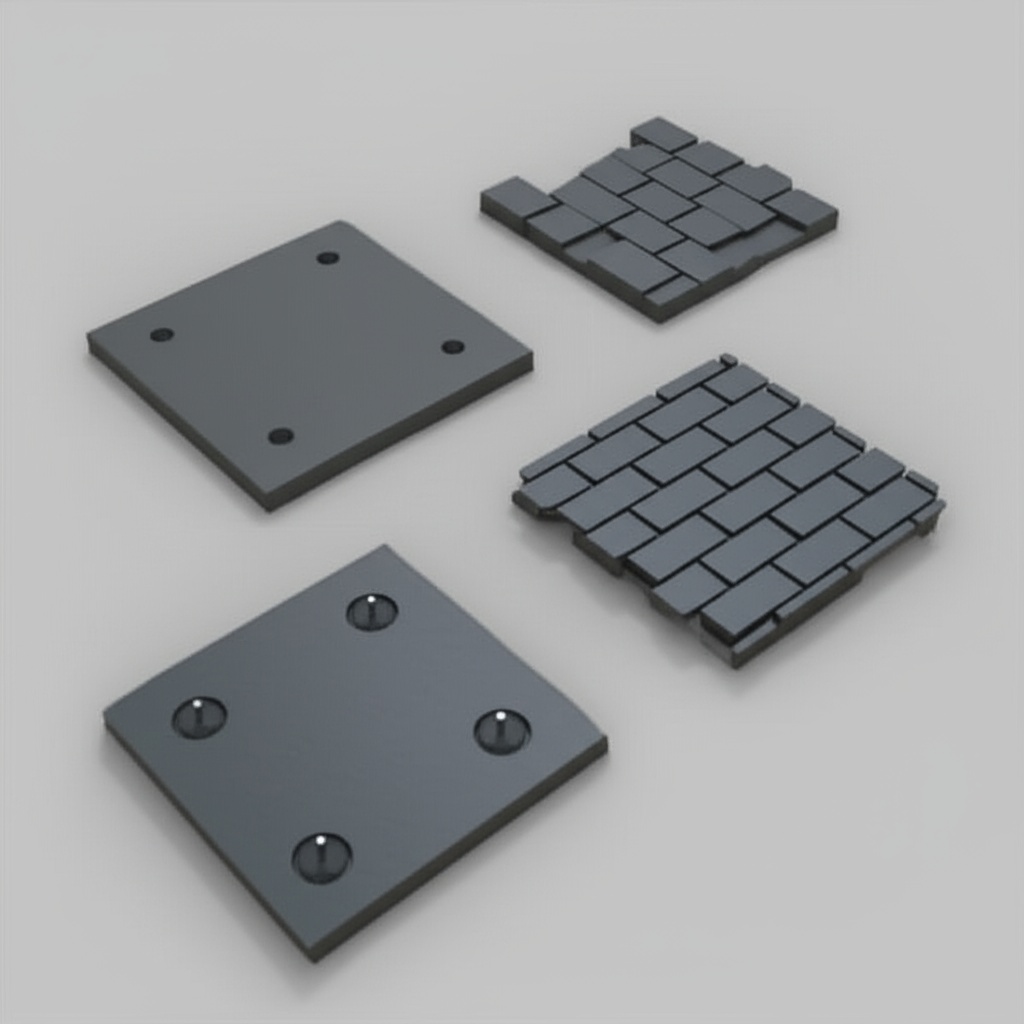Finding Reputable SiC Suppliers in Chile

Share
Finding Reputable SiC Suppliers in Chile
In today’s rapidly evolving industrial landscape, the demand for high-performance materials that can withstand extreme conditions is paramount. Among these, silicon carbide (SiC) stands out as a material of choice for its exceptional properties. From semiconductor manufacturing to aerospace and renewable energy, custom silicon carbide products are becoming indispensable. This blog post will guide you through the process of finding reputable SiC suppliers, with a specific focus on the Chilean market, and introduce a key player in the global SiC supply chain.
What are Custom Silicon Carbide Products?
Custom silicon carbide products are engineered components meticulously designed and fabricated to meet the specific requirements of various high-performance industrial applications. Unlike standard off-the-shelf parts, custom SiC components offer precise dimensions, tailored material properties, and optimal performance for unique operational environments. This customization ensures maximum efficiency, longevity, and reliability in critical systems.
Main Applications of Silicon Carbide Across Industries
The unique properties of silicon carbide, including its extreme hardness, high thermal conductivity, excellent chemical inertness, and superior high-temperature strength, make it suitable for a diverse range of demanding applications across numerous sectors:
- Semiconductor Manufacturing: SiC is crucial for fabricating high-power, high-frequency, and high-temperature electronic devices, including power MOSFETs, diodes, and integrated circuits. Its excellent thermal management properties are vital in these applications.
- Automotive Industry: Used in electric vehicle (EV) inverters, on-board chargers, and other power electronics, SiC enables lighter, more efficient, and more compact designs, extending range and improving performance.
- Aerospace Companies: For components exposed to high temperatures and abrasive environments, such as jet engine parts, thermal protection systems, and missile components, SiC offers exceptional durability and lightweight properties.
- Power Electronics Manufacturers: SiC-based devices are revolutionizing power conversion systems, leading to higher efficiency, reduced cooling requirements, and smaller form factors in everything from grid infrastructure to consumer electronics.
- Renewable Energy Companies: Essential in solar inverters, wind turbine converters, and energy storage systems, SiC improves efficiency and reliability, contributing to more sustainable energy solutions.
- Metallurgical Companies: SiC is used in furnace linings, crucibles, and other high-temperature processing equipment due to its exceptional thermal shock resistance and chemical stability in molten metal environments.
- Defense Contractors: For ballistic protection, lightweight armor, and high-performance weaponry components, SiC’s hardness and strength are invaluable.
- Chemical Processing Companies: Its superior corrosion resistance makes SiC ideal for pump seals, valve components, and heat exchangers in harsh chemical environments.
- LED Manufacturers: SiC substrates are used for epitaxy of GaN-based LEDs, enabling brighter and more efficient lighting solutions.
- Industrial Equipment Manufacturers: Applied in wear parts, bearings, and seals for machinery operating in abrasive or high-temperature conditions, extending equipment lifespan and reducing maintenance.
- Telecommunications Companies: SiC is found in base station power amplifiers and high-frequency communication systems due to its excellent electrical properties at high temperatures.
- Oil and Gas Companies: Used in downhole tools, pump components, and drilling equipment where resistance to corrosion, abrasion, and high temperatures is critical.
- Medical Device Manufacturers: For surgical instruments and prosthetics requiring biocompatibility, high strength, and wear resistance.
- Rail Transportation Companies: In traction systems and power converters, SiC enhances efficiency and reliability, contributing to more sustainable rail operations.
- Nuclear Energy Companies: For components requiring high radiation resistance, thermal stability, and structural integrity in extreme environments.
Why Choose Custom Silicon Carbide for Industrial Applications?
Choosing custom silicon carbide offers distinct advantages over standard materials, especially in demanding industrial environments:
- Exceptional Thermal Resistance: SiC can withstand extremely high temperatures, far exceeding the capabilities of many other engineering ceramics. This makes it ideal for furnace components, heat exchangers, and high-temperature sensors.
- Superior Wear Resistance: Its inherent hardness and abrasion resistance make SiC an excellent choice for components subjected to friction and wear, such as pump seals, bearings, and nozzles.
- Outstanding Chemical Inertness: SiC exhibits remarkable resistance to attack from most acids, alkalis, and corrosive gases, crucial for chemical processing equipment and semiconductor fabrication.
- High Strength and Stiffness: Possessing high Young’s modulus and flexural strength, SiC maintains its structural integrity under significant loads and at elevated temperatures.
- Excellent Thermal Shock Resistance: The ability to withstand rapid changes in temperature without cracking or fracturing is vital for applications involving thermal cycling.
- Tunable Electrical Properties: Depending on its doping, SiC can be made insulating, semiconducting, or even electrically conductive, allowing for versatile electrical applications.
Recommended SiC Grades and Compositions
Silicon carbide comes in various grades and compositions, each optimized for specific applications:
| SiC Grade/Type | Key Characteristics | Typical Applications |
|---|---|---|
| Reaction-Bonded SiC (RBSC) | High strength, excellent thermal shock resistance, good wear resistance, complex shapes possible. | Kiln furniture, wear plates, nozzles, mechanical seals. |
| Sintered Alpha SiC (SSiC) | Extremely hard, high strength, excellent chemical resistance, very high thermal conductivity. | Ballistic armor, pump components, sliding bearings, seal rings. |
| Nitride-Bonded SiC (NBSC) | Good thermal shock resistance, excellent wear resistance, lower density than RBSC. | Refractory applications, furnace components, burner nozzles. |
| Liquid Phase Sintered SiC (LPSiC) | Improved fracture toughness and creep resistance, finer grain structure. | Advanced structural components, high-stress applications. |
| Chemical Vapor Deposited (CVD) SiC | Extremely high purity, near theoretical density, excellent surface finish. | Semiconductor equipment components, optical mirrors. |
Design Considerations for Custom SiC Products
Designing with silicon carbide requires careful consideration due to its unique properties:
- Geometry Limits: SiC is a hard and brittle material, which impacts machining. Avoid sharp internal corners, deep narrow grooves, and extremely thin walls. Radii should be incorporated wherever possible to mitigate stress concentrations.
- Wall Thickness Uniformity: Consistent wall thickness is crucial for uniform sintering and to minimize distortion during processing.
- Stress Points: Identify and mitigate potential stress concentration points. Chamfers, radii, and appropriate fillets are essential to prevent cracking.
- Tolerances: While SiC can achieve high precision, specifying overly tight tolerances can significantly increase manufacturing costs and lead times. Understand the achievable tolerances for the chosen SiC grade and manufacturing process.
- Material Grade Selection: The specific application will dictate the most suitable SiC grade. Consider factors like operating temperature, chemical exposure, mechanical loads, and required electrical properties.
- Assembly Methods: Plan for appropriate joining methods, such as mechanical fastening, brazing, or adhesive bonding, considering SiC’s thermal expansion characteristics.
Tolerance, Surface Finish & Dimensional Accuracy
Achieving precise tolerances and optimal surface finishes is critical for the performance of SiC components:
- Achievable Tolerances: Generally, precision machining allows for tolerances in the range of $pm 0.01$ to $pm 0.05$ mm for critical dimensions, depending on the part size, complexity, and manufacturing process. Post-sintering grinding and lapping can achieve even tighter tolerances.
- Surface Finish Options: Surface finishes can range from as-fired (rougher, economical) to fine ground, lapped, or polished (smoother, higher cost). Ra values can range from several micrometers for as-fired parts down to sub-nanometer levels for polished optical surfaces.
- Dimensional Accuracy: High dimensional accuracy is paramount for proper fit and function in complex assemblies, especially in semiconductor and aerospace applications. Advanced metrology techniques are used to verify dimensions.
Post-Processing Needs for Enhanced Performance
After initial fabrication, custom SiC products often undergo post-processing steps to enhance their performance and durability:
- Grinding: Precision grinding is essential to achieve tight dimensional tolerances and desired surface finishes. Diamond abrasives are typically used due to SiC’s extreme hardness.
- Lapping and Polishing: For critical surfaces requiring exceptional flatness, parallelism, and smoothness (e.g., mechanical seals, optical components), lapping and polishing provide superior surface integrity.
- Sealing: In some applications, especially those involving aggressive media, additional sealing processes may be employed to ensure leak-proof performance.
- Coating: Specific coatings can be applied to enhance properties like wear resistance, corrosion resistance, or electrical conductivity/insulation, depending on the application.
- Brazing and Joining: For integrating SiC components into larger systems or joining them with other materials, specialized brazing or joining techniques may be required.
Common Challenges and How to Overcome Them in SiC Manufacturing
While silicon carbide offers incredible advantages, its fabrication comes with challenges:
- Brittleness: Like most ceramics, SiC is brittle, making it susceptible to fracture under tensile stress or impact. Design considerations (e.g., radii, avoiding stress concentrations) and careful handling are crucial.
- Machining Complexity: Its extreme hardness makes SiC very difficult and costly to machine, requiring specialized diamond tools and advanced machining techniques (e.g., ultrasonic machining, laser machining).
- Thermal Shock Sensitivity: While generally good, extreme thermal gradients can still induce cracking in certain SiC grades. Proper design and material selection are key.
- High Sintering Temperatures: Achieving full density in SiC requires very high sintering temperatures, demanding specialized furnaces and precise process control.
- Cost: The raw materials, specialized processing, and machining of SiC can make initial costs higher than conventional materials. However, its extended lifespan and performance often result in lower total cost of ownership.
How to Choose the Right SiC Supplier
Selecting a reliable silicon carbide supplier is paramount for the success of your project:
- Technical Capabilities: Evaluate the supplier’s expertise in SiC materials science, design for manufacturability, and advanced fabrication techniques. Do they offer engineering support?
- Material Options: A diverse range of SiC grades (RBSC, SSiC, NBSC, CVD SiC, etc.) indicates comprehensive capabilities to meet various application needs.
- Certifications and Quality Control: Look for ISO certifications and robust quality management systems (e.g., ISO 9001, AS9100 for aerospace). Request material data sheets and quality reports.
- Experience and Track Record: A proven history of successful projects in your industry or similar demanding applications is a strong indicator of reliability. Ask for case studies or references.
- Customization Support: For custom components, the supplier’s ability to provide tailored solutions, from design consultation to post-processing, is essential. Check their customization support services.
- Production Capacity and Lead Times: Ensure the supplier can meet your volume requirements and deliver within your project timelines.
- Geographic Reach and Logistics: Consider their ability to efficiently ship products to your location, including adherence to international trade regulations.
Cost Drivers and Lead Time Considerations for SiC Components
Understanding the factors that influence the cost and lead time of custom SiC products is crucial for effective procurement:
| Cost Driver | Impact on Pricing |
|---|---|
| Material Grade | Higher purity or specialized SiC grades (e.g., CVD SiC) are significantly more expensive than standard grades. |
| Component Complexity | Intricate geometries, tight tolerances, thin walls, and complex internal features increase machining time and tooling costs. |
| Volume | Economies of scale typically apply; higher volumes generally lead to lower per-unit costs. |
| Surface Finish Requirements | Lapping, polishing, and other fine finishing processes add significant cost due to specialized equipment and labor. |
| Post-Processing | Additional steps like special coatings, brazing, or complex assembly will increase the overall cost. |
| Quality Control & Testing | Rigorous inspection and testing (e.g., NDT, material characterization) can add to the final price, especially for critical applications. |
Lead times for custom SiC components can vary widely, typically ranging from a few weeks for simpler parts to several months for highly complex designs requiring extensive R&D, tooling, and post-processing. It’s crucial to engage with suppliers early in your design process to get accurate estimates.
A Global Leader in Silicon Carbide Customization
When seeking reliable and high-quality custom silicon carbide solutions, it’s beneficial to look beyond local suppliers and consider global leaders. Here is the hub of China’s silicon carbide customizable parts factories. As you are aware, the hub of China’s silicon carbide customizable parts manufacturing is situated in Weifang City of China. Now the region has been home to over 40 silicon carbide production enterprises of various sizes, collectively accounting for more than 80% of the nation’s total silicon carbide output.
We, Sicarb Tech, have been introducing and implementing silicon carbide production technology since 2015, assisting the local enterprises in achieving large-scale production and technological advancements in product processes. We have been a witness to the emergence and ongoing development of the local silicon carbide industry.
Based on the platform of the National Technology Transfer Center of the Chinese Academy of Sciences, Sicarb Tech is part of Chinese Academy of Sciences (Weifang) Innovation Park, an entrepreneurial park that collaborates closely with the National Technology Transfer Center of the Chinese Academy of Sciences. It serves as a national-level innovation and entrepreneurship service platform, integrating innovation, entrepreneurship, technology transfer, venture capital, incubation, acceleration, and scientific and technological services.
Sicarb Tech capitalizes on the robust scientific, technological capabilities and talent pool of the Chinese Academy of Sciences . Backed by the Chinese Academy of Sciences National Technology Transfer Center, it serves as a bridge, facilitating the integration and collaboration of crucial elements in the transfer and commercialization of scientific and technological achievements. Moreover, it has established a comprehensive service ecosystem that spans the entire spectrum of the technology transfer and transformation process, ensuring more reliable quality and supply assurance within China.
Sicarb Tech possesses a domestic top-tier professional team specializing in customized production of silicon carbide products. Under our support, 518+ local enterprises have benefited from our technologies. We possess a wide array of technologies, such as material, process, design, measurement & evaluation technologies, along with the integrated process from materials to products. This enables us to meet diverse customization needs. We can offer you higher-quality, cost-competitive customized silicon carbide components in China. Discover more about our approach and capabilities on our About Us page.
We are also committed to assisting you in establishing a specialized factory. If you need to build a professional silicon carbide products manufacturing plant in your country, Sicarb Tech can provide you with the technology transfer for professional silicon carbide production, along with a full-range of services (turnkey project) including factory design, procurement of specialized equipment, installation and commissioning, and trial production. This enables you to own a professional silicon carbide products manufacturing plant while ensuring a more effective investment, reliable technology transformation, and guaranteed input-output ratio. To discuss your project, please contact us directly.
Frequently Asked Questions (FAQ)
Here are some common questions regarding silicon carbide and its applications:
- What is the primary advantage of using SiC over other ceramics like Alumina or Zirconia?
SiC generally offers superior thermal conductivity, higher strength at elevated temperatures, and better chemical resistance, particularly to acids and molten metals, making it ideal for more extreme environments where other ceramics might fail. - Can silicon carbide components be repaired?
Due to its extreme hardness and brittleness, repairing SiC components is often challenging and not always feasible. Minor chips or cracks might be addressed through grinding or polishing, but significant damage typically necessitates replacement. It’s crucial to prioritize proper design and handling to prevent damage. - Is custom SiC cost-effective for small-batch production?
While the initial cost per unit for small batches might be higher due to setup and tooling, the long-term benefits of custom SiC, such as extended lifespan, reduced downtime, and enhanced performance, often lead to a lower total cost of ownership, making it a viable and often superior solution even for smaller runs in critical applications.
Conclusion: The Value Proposition of Custom Silicon Carbide
Custom silicon carbide products represent a cornerstone of modern industrial innovation, enabling breakthrough performance in the most demanding environments. For engineers, procurement managers, and technical buyers across industries like semiconductors, aerospace, power electronics, and more, leveraging custom SiC components offers unparalleled advantages in terms of thermal resistance, wear resistance, chemical inertness, and overall system reliability. By understanding the intricacies of SiC grades, design considerations, and the critical factors in supplier selection, you can unlock the full potential of this advanced ceramic material. Partnering with experienced and technologically advanced manufacturers like Sicarb Tech ensures access to high-quality, cost-competitive solutions, backed by extensive research and development, and a commitment to technological advancement, ultimately driving your projects forward with confidence and superior performance.

About the Author: Sicarb Tech
We provide clear and reliable insights into silicon carbide materials, component manufacturing, application technologies, and global market trends. Our content reflects industry expertise, practical experience, and a commitment to helping readers understand the evolving SiC landscape.




